
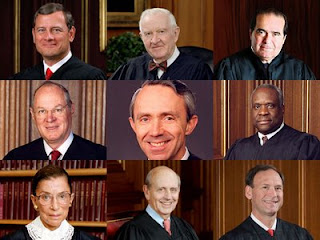



Visit msnbc.com for breaking news, world news, and news about the economy
Florida Refuses to Stop Voter Purge
Last week the U.S. Department of Justice ordered Florida's Secretary of State Ken Detzner to halt the state's plan to purge thousands of registered voters from the voter rolls.
Florida's database-matching process for deciding which residents are ineligible non-citizens had not been cleared with the Justice Department -- a step that the agency argues is required under Section 5 of the Voting Rights Act, which mandates that states and counties with a history of voting discrimination (in Florida's case, five counties within the state) get federal permission to change election procedures.
The Justice Department thusly called on the state to stop the purge and submit the procedure that it's using for federal review.
On Wednesday night the state of Florida officially responded to the request.
In a letter (pdf) to the Justice Department, Detzner firmly maintained that Gov. Rick Scott will continue with the purge.
As the Miami Herald reports:
In a sharply worded letter, Scott's administration claimed the Department of Justice doesn't understand two federal voting laws at the heart of the dispute and was protecting potentially illegal voters more than legal ones.
Florida also accused another federal agency, the Department of Homeland Security, of violating the law by denying Florida access to a federal citizenship database.
"This hardly seems like an approach earnestly designed to protect the integrity of elections and to ensure that eligible voters have their votes counted," said the letter, written by Scott's hand-picked secretary of state, Ken Detzner, a fellow Republican.
Detzner also submitted a list of four questions that he wants the DOJ to answer.
In tone and substance, the letter all but dares the Justice Department to sue Florida for allegedly violating the 1965 Voting Rights Act and the 1993 National Voter Registration Act (NVRA), nicknamed "motor voter."
The Justice Department hasn't yet responded to the letter, but a lawsuit is certainly one possibility.
However, the DOJ isn't the only camp calling Florida's purge into serious question.
All 67 of Florida's county election supervisors responsible for doing the actual purging (the vast majority of whom are Republicans, by the way) have refused to comply with Gov. Scott's orders.
Local election officials in Florida, echoing the cries of legal challengers to the state's voter purge, say that the data used to identify people as noncitizens are flawed.
Throughout the state, election supervisors have found that hundreds of people on the lists created by Scott's administration are, in fact, eligible voters.
As the Republican Pinellas County Supervisor of Elections Deborah Clark wrote, "The accuracy of the voter registration database is of the utmost importance, and we will continue our efforts to ensure the information is current.
However, we will not use unreliable data."
Judd Legum, editor-in-chief of Think Progress, which has interviewed several Florida election supervisors, says that Scott's fight has become more symbolic than practical. "The county elections supervisors aren't doing it, but Florida is still pressing ahead with their own effort," said Legum, who explained that under Florida law, only the election supervisors, not Scott, can remove people from the rolls. "But the legal fight is still important because they could change their mind at any time.
It's just unclear what the impact of all of this is at this point."
Florida won't halt voter registration purge, setting stage for legal showdown
Florida's top elections official has thrown allegations of law violations back at the federal government rather than halt the state's efforts to identify and purge non-citizens from voter registration rolls.
The decision Wednesday by the administration of Republican Gov. Rick Scott to fight back against the administration of President Barack Obama sets the stage for a legal showdown just months before the swing stage of Florida could help determine the presidential election. The dispute has taken a sharp partisan edge as Republican elected officials have blasted the federal government, while Democrats have criticized Scott.
Secretary of State Ken Detzner in his latest response accused the U.S. Department of Homeland Security of violating federal law by refusing to give state election officials access to an immigration database for the effort that was launched at the urging of Scott.
"This hardly seems like an approach earnestly designed to protect the integrity of elections and to ensure that 'eligible" voters have their votes counted," Detzner wrote.
He also denied allegations by the Department of Justice that Florida's purge violates federal anti-discrimination and voter registration laws in a letter to the agency's voting section chief, T. Christian Herren.
Detzner's letter is in response to one Herren sent him last week demanding an end to the state's search for non-citizen voters. The legal adviser to Florida's 67 county supervisors of elections then recommended they stop the effort until state and federal officials resolve their dispute.
"Fortunately, many local election administrators have indicated they will not carry out the state's plan," said Myrna Perez, a voting rights lawyer with the Brennan Center Center for Justice at New York University. "The opportunity for errors when conducting massive voter purges makes it imperative that purge practices be transparent, accurate, and carried out well in advance of an election."
A U.S. Department of Justice official on Wednesday evening acknowledged the department had received but the letter but said officials were "currently reviewing the letter."
Florida began looking for non-U.S. citizens on its voter rolls last year by comparing driver's license information to voter registration lists. An initial search turned up as many as 182,000 registered voters who may not be U.S. citizens.
Earlier this year the state sent out an initial list of more than 2,600 names of suspected non-citizen voters to local election supervisors and asked them to verify the information and remove ineligible voters.
Supervisors, however, responded by pointing out the list had errors on it. Miami-Dade officials say they have found nearly 500 voters who were citizens and other counties they too have found citizens on the list, but a smaller number of non-citizens have been verified.
"It is absolutely insane what Gov. Scott is doing to attack Florida voters," said U.S. Rep. Alcee Hastings, D-Miramar. "We know what he is up to, we are mad as hell, and we will not allow our voting rights to be trampled on."
U.S. Rep. Tom Rooney, R-Tequesta, criticized the U.S. Department of Justice for telling Florida to stop its purge.
"The Department of Justice under President Obama has become so politicized that it consistently puts aiding the president's reelection campaign ahead of upholding justice and enforcing the rule of law," Rooney said.
Herren wrote in his letter to Detzner that the state's procedures to identify non-U.S. citizens have not been reviewed to make sure they are not discriminatory. Florida must secure approval for changes in voting procedures because five counties are still covered by the Voting Rights Act of 1965.
Detzner argued the rest of the state is not covered by that requirement and that supervisors of elections in the five affected counties "are simply administering a law that the Department of Justice has duly pre-cleared." That law outlines notification requirement and other procedures supervisors must follow before they can remove potentially ineligible voters from the rolls.
Removing voters from the rolls less than 90 days before a federal election also appears to violate the voter registration law, Herren also contended.
Detzner argued enforcing that provision in regard to non-citizens would unconstitutionally discriminate against legitimate voters by diluting their voting strength.
The secretary concluded with a list of four questions for Herren, starting with whether the Justice Department agreed Homeland Security has a legal obligation to give Florida access to its immigration database.
Detzner also asked if the department's position is that federal law bars Florida from identifying and removing non-citizens between now and the Nov. 6 general election and, if not, what steps the state may take in that regard.
Finally, he asked if Florida cannot remove non-citizens from the rolls whether it could still identify them and remove them after the election.
Detzner asked that Herren respond by Monday.
View Larger Map
Sources: CBS News, Journal line Online.com, MSNBC, Russia Today, Sunshine State News, The Root, Youtube, Google Maps




















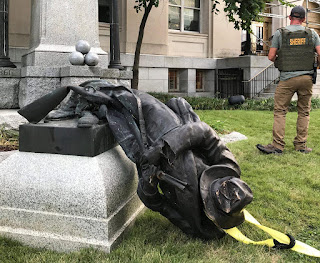
































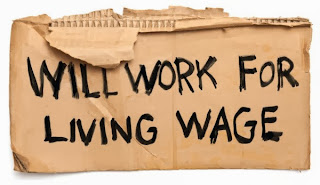












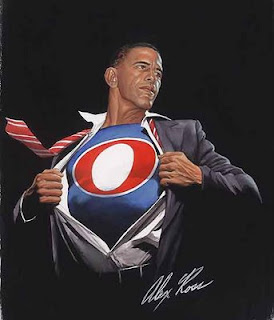




.jpg)








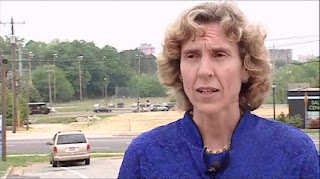














No comments:
Post a Comment